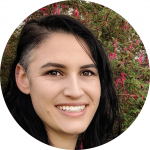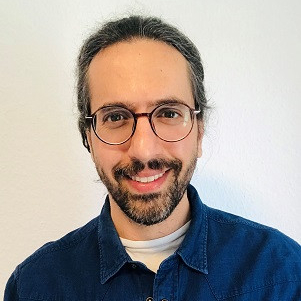“I feel that enabling more people to leave their jobs in the capitalist paradigm and work full time on solidarity and justice movements while building the commons is a huge lever for change. The same goes for combining the power of multiple diverse groups through the use of a shared open platform. Through collectivising resources—technical, financial, and structural—we can achieve so much. I think we have only just scratched the surface, and could do a lot more to spot and facilitate more such collaboration,” says Alanna Irving.
Alanna Irving builds open source tools for radical participation and collaboration, and is especially interested in how communities can harness the powers of money, technology, and legal structures for positive social change. She previously co-founded Enspiral, Loomio, and Cobudget, and co-authored the book Better Work Together. Alanna is currently COO of Open Collective and Executive Director of Open Collective Foundation. More info and contact.
This publication originates as part of the project “Improving Equity in Sustainable Access to Medical Treatments” which is building a community of changemakers to identify solutions for related improvements, ultimately to be communicated as “Recommendations for Action”.
Alanna Irving added to the first associated event “Building Economies of Connectedness”, which was intended to scrutinize the operational framing of the project itself, since the project aims to not only communicate equitable improvements, but also incorporating social equity in the way it is carried out as project in itself.
Acknowledgement: This project production is made possible through the support of a growing community: Aniqa Moinuddin, Bahman Morteza Etezadibehzadi, Open Collective, Sebastian Klemm, Tiberius Brastaviceanu, Timo Wans, Unai Gaztelu
You can contribute too:
Leverage your opportunity to being named in each project publication, attend meeting exchanges, and influence the priority of measures in the “Recommendations for Action” that this project will output and disseminate:
Sebastian Klemm: In one of your talks on How to Grow Distributed Leadership, you have been saying: “Leadership is not a position, it is a force in groups that enables collective action.” How then to cultivate such force?

Alanna Irving: I am really nerdy about leadership (along with money and legal structures), and how it can add up to community empowerment and social change. How do we re-conceive leadership to not be about coercive power structures, but be about enabling everybody to participate in leadership together. One model that I have come up with is called Full Circle Leadership, which is about all the different diverse kinds of leadership and how they can work together collaboratively. Also a model of How to Grow Distributed Leadership. There is not a quick short answer; it is a little bit deeper than that. Yet, the summary is: All of us have leadership capacities, and we do not have to think of leadership as something in a specific role or embodied in a person. It can be embodied in our culture, the way that we practice together, social processes, and also in technology tools to support co-leadership and distributed leadership, together.
Sebastian Klemm: How does Open Collective become effective as a platform?

Alanna Irving: Open Collective is a platform that enables collaborative groups and communities to raise and spend money in full transparency. Open Collective is powered by a whole network of what we call “fiscal hosts”. A fiscal host is an organization that has a formal structure, a legal entity with a bank account, that offers to be an umbrella organization under which unincorporated groups can operate. Open Collective is a system to help manage that whole process.
There are lots of examples of fiscal hosts. Open Source Collective is fiscal host to almost 3000 open source software projects around the world. Accountable supports community groups in the UK. Open Collective Foundation supports groups in the US working on civic engagement, education, and social impact—lots of mutual aid groups, social justice groups, climate action groups. All For Climate is a fiscal host in Europe that specifically supports climate action groups—lots of chapters of Extinction Rebellion, Fridays For Future, all these climate related movements. What this means is each of those local chapters does not need to figure out incorporating an entity and getting a bank account, seeking non-profit status, hiring an accountant, thinking about lawyers, and all this really heavy stuff. They can join the fiscal host and get that infrastructure taken care of for them, so that they can really focus on their mission about the climate and building their community.
Proofing Future: Bridging People + Ideas is an example of an organization that already has a bank account and a legal entity behind it. That entity can just plug the Open Collective system directly into their bank account and enable all these really cool community engagement and financial transparency features.
Let us take a look at the example of Bushwick AyudaMutua, a group in New York in the U.S. You can see they are raising money and reaching different goals and hosting events. You can see all the different people who are contributing money, where all the money is coming from, and then, importantly, where does all the money go. Bushwick Ayuda Mutua is doing a lot of food distribution. You can see their budget transparently on their page. There are blog posts, email newsletters, all these ways that they are building their community, and you can see their team behind it.
A group of individuals administrates a Collective, which represents a much wider community of supporters and participants. Collectives make up a fiscal host, and fiscal hosts make up the Open Collective platform. Open Collective is operating at all of these levels.
Our CEO Pia Mancini recently published a blog post about how Open Collective is looking to do an “Exit to Community”, which is where we will sell ourselves to our community of stakeholders. Thus, the platform itself can be owned and governed by fiscal hosts and by the Collectives.
We are building capacities at each of those levels: individuals’ capacity to collaborate and raise money together to support their project, Collectives’ capacities to participate in governing their fiscal host umbrella organization, and fiscal hosts’ ability to interact with governing the platform.
Sebastian Klemm: In which ways does Open Collective facilitate collectives to display their professional needs, detect synergistic opportunities and share in their capabilities to lift one another?

Alanna Irving: This is an area we are very interested in, but have not fully manifested yet. It is beginning to emerge in the monthly open community calls that different fiscal hosts are holding, where we can hear about what Collectives need and connect them with one another. I think there is a huge opportunity for us to do more in this space, as a platform interconnecting many aligned communities.
The fact that our mode of engagement with the world is in the form of using financial and legal structures creatively to build commons opens some interesting doors. For example, in the US people get health insurance through their employer. Many changemakers, activists, and commons-builders patch together contracting on projects, working day jobs to support their voluntary work, fundraising non-trivial sums that are still not enough to support proper full time roles. They are therefore in a precarious situation for livelihood and healthcare. This means they have less time to do community work, and many people can not afford to get involved at all.
Open Collective Foundation, one of the platform’s large fiscal hosts, has the scale and infrastructure to be an employer and create full time jobs for multiple people across different Collectives, to the point where we can access group health insurance plans only available to larger employers. We have some employees of OCF who are also seconded out to work on projects under other fiscal hosts. The employee can have a stable full time income with benefits, while on the Open Collective platform we can flexibly pool dollars from many projects to fund their wages, because Open Collective is like an internal economy with a mechanism to link to the outside economy. By combining various projects, we can meet the needs of both the projects and the workers.
Other cool examples from Open Collective Foundation:
A coalition of multiple mutual aid groups in a city are banding together to lease a warehouse to use as a base for their food distribution and other activities. No one individual in those groups, nor any one of those groups alone (as unincorporated projects) could take on a large-scale multi-year commercial lease, but together, and with the support of a fiscal host, they can pull together the budget, get the required liability insurance, and have the legal aspects in place to sign such a contract.
Another interesting one is about political lobbying. The IRS places limits on the proportion of annual budget that a 501(c)(3) (charity entity) can spend on lobbying, ie. advocating for specific laws and candidates. We had a group that lobbied for a new law in their state to reduce employment discrimination for previously incarcertated people. If that group had been operating as an independent entity, it could have sent up red flags in terms of IRS compliance, but as this is one group out of nearly 300 hosted by OCF, which will manage $13m this year, this specific activity was only a tiny fraction overall, and nowhere near enough to be an issue. We want to empower our groups politically, and this setup enables some to be highly politically active while being balanced out by the large proportion of other non-lobbying activity across the network. I see this capacity as part of our shared commons.
I want to push this further. I feel that enabling more people to leave their jobs in the capitalist paradigm and work full time on solidarity and justice movements while building the commons is a huge lever for change. The same goes for combining the power of multiple diverse groups through the use of a shared open platform. Through collectivising resources—technical, financial, and structural—we can achieve so much. I think we have only just scratched the surface, and could do a lot more to spot and facilitate more such collaboration.
Sebastian Klemm: What sources can you recommend to all those who want to take the first steps towards their own collective on the Open Collective platform?

Alanna Irving: If you would like general info on Open Collective and how the platform works, check out the main website and our documentation. Our blog is pretty exciting too, in my opinion! Lots of case studies there.
If you are seeking to join a fiscal host, it can be good to start by finding one that matches your needs (e.g. geographical location, topic area), because each host serves a specific community and has information and onboarding tailored to that kind of group, for example climate change movements in Europe, open source software projects, community groups in the US, NZ, or UK, etc. You can see all fiscal hosts here.
You can find more info and contact Alanna Irving here.






